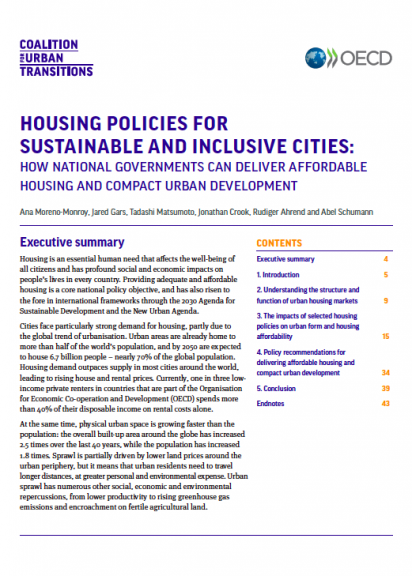Housing policies for sustainable and inclusive cities: How national governments can deliver affordable housing and compact urban development


To deliver sustainable and inclusive cities, national housing policies must achieve two objectives at the same time: boost affordable housing supply and deliver compact urban development.
This new report is the first to examine how national housing policies can deliver affordable housing in compact cities. Using evidence from high- and middle-income countries, it analyses the pros and cons of a range of national government housing policies. It finds that often policies designed to address problems in one area (e.g. house prices) create unanticipated trade-offs in another (e.g. sprawl).
In more developed regions such as Europe, North America, Australia and Japan, around 80% of people live in towns and cities. Demand for affordable housing outpaces supply in most of these settlements, with 1 in 3 low-income renters in Organisation for Economic Co-operation and Development (OECD) countries spending more than 40% of their budget on rent alone.
At the same time, all these regions are seeing urban sprawl as towns and cities become less dense. This is driven by the lower costs of land on the periphery, but the steady encroachment into rural areas has many costs. Residents are forced to travel further to access jobs, services and social opportunities, at higher environmental and financial cost. Plus urban expansion eats into productive agricultural land and fragile ecosystems.
National governments around the world are faced with a challenge: how to provide enough good-quality, affordable housing while also nurturing dense, vibrant neighbourhoods, with sufficient green space, safe transport and good amenities.
The report offers key principles that national governments should apply and gives three policy recommendations to create more productive, inclusive and sustainable cities:
This paper was created in partnership with the OECD.